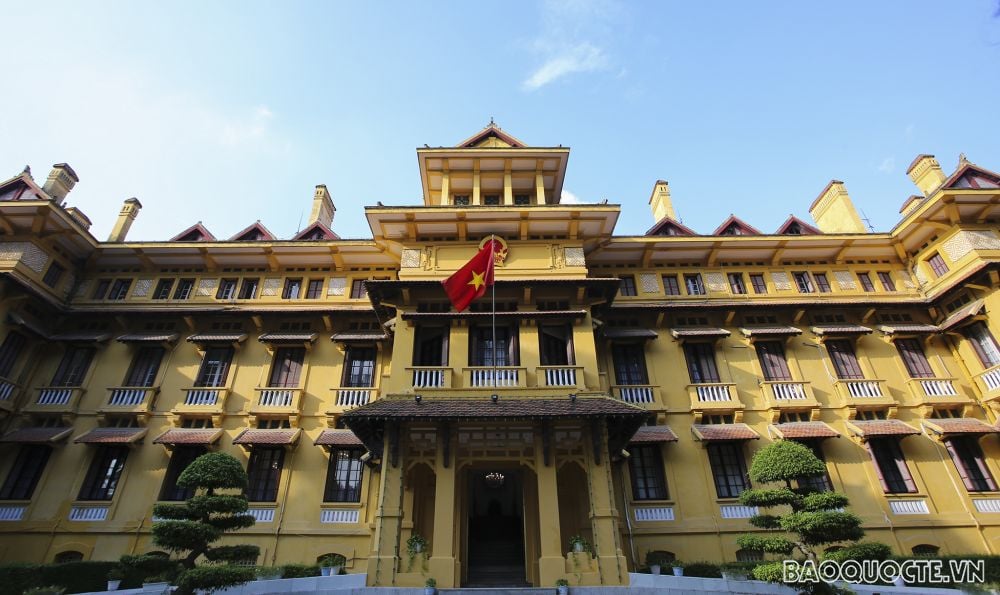 |
| After 80 years of formation and development with many historical lessons, Vietnam's diplomacy has grown and matured. (Photo: Nguyen Hong) |
Since President Ho Chi Minh signed the Decree establishing the Provisional Government of the Democratic Republic of Vietnam and with it the birth of modern Vietnamese diplomacy (August 28, 1945 - August 28, 2025). Not only was he the first Minister of Foreign Affairs, he also directly participated in and directed diplomatic activities and trained and built a team of officials. At that time, the number of diplomatic officials was only 20 people, including a number of revolutionary cadres and young intellectuals who were good at French, English, Chinese, and Russian, working in three departments: the General Secretary, the Advisory Board, and the Office.
At that time, few people thought that this somewhat modest beginning would be an important foundation for the extraordinary achievements of Vietnamese diplomacy later on. On the difficult but glorious historical journey, under the training of the Party and Uncle Ho, diplomacy gradually became a strategic front, an important arm of the revolution, contributing worthily to the overall victory of the nation.
Under the leadership of the Party, with the participation and coordination of the entire people and army, Vietnamese diplomacy has overcome all difficulties and obstacles to mature and grow. Vietnamese diplomacy has gone from weak to strong, from partial victory to complete victory. Vietnamese diplomacy has matured through revolutionary practice, reflecting the revolutionary process of the nation. The Ho Chi Minh era has brought Vietnamese diplomacy to a new level, achieving great results.
At the same time, besides the tradition, the proud results after 80 years of serving the Fatherland, the Party and the People of Vietnamese diplomacy leave behind many great lessons, especially in difficult and arduous periods, generations of diplomatic cadres need to constantly learn and apply to follow in the footsteps of their predecessors in the 21st century.
| Vietnamese diplomacy goes from weak to strong, from partial victory to complete victory. Vietnamese diplomacy matures through revolutionary practice, reflecting the revolutionary process of the nation. |
Unflinching, determined to protect peace from early on, from afar
After the August Revolution, the revolutionary government was still young, the country faced a situation of internal and external enemies. President Ho Chi Minh declared: Vietnam wanted to "be friends with all democratic countries and not make enemies with anyone." Facing the risk of war, Uncle Ho carried out many diplomatic activities to save peace: He directly negotiated with representatives of the French government to sign the Preliminary Agreement on March 6, 1946, then personally went to France for nearly 5 months to direct the negotiating delegation at the Fontainebleau conference, at the same time taking advantage of French and world public opinion to support the Vietnamese people's aspirations for independence and unification.
However, due to the stubborn colonial stance of the French delegation and the deliberate sabotage of the negotiations by the French army in Vietnam, the negotiations at Fontainebleau (July 6-September 10, 1946) failed. He determined that at all costs he had to save the Preliminary Agreement of March 6, 1946, maintain the possibility of resuming bilateral negotiations, and gain more time for reconciliation between the two sides. On September 14, 1946 and the early morning of September 15, 1946, he made efforts to negotiate to sign the September 14 Provisional Agreement with the French Minister of Overseas Affairs, Marius Moutet, in order to gain more time to prepare for the inevitable war of aggression.
President Ho Chi Minh’s visit to France in 1946 was truly a unique phenomenon in international relations. Because he was the first head of state of a colonial country that had been sentenced to death in absentia by the colonial “mother country”, but used their own planes and warships to visit France as a distinguished guest.
That action demonstrated the courage and spirit of a leader who boldly "entered the tiger's den" with a strong belief in the justice of the cause and the spirit of unity, "millions as one" of the Vietnamese people at that time.
Skillful behavior, turning danger into safety
However, for a diplomat, courage and bravery alone are not enough. In the context of the newly established Democratic Republic of Vietnam, which was always in a "life-threatening" situation, the most prominent mark of the diplomatic victory of this period under the leadership of the Party and President Ho Chi Minh was the strategy and ability to skillfully deal with five major countries at the same time and simultaneously deal with four foreign armies of over 300,000 soldiers present in Vietnam.
He skillfully took advantage of the contradictions between countries and had appropriate strategies for each target and at all costs put the national and ethnic interests above all. Vietnam took advantage of the contradictions between Chiang and France to divide them so that they would not join hands with each other. The Party and Uncle Ho made concessions at the right time when France was under pressure from Chiang's army to open fire. President Ho Chi Minh came up with a new formula to break the deadlock, which was to replace the word "independence" with the word "freedom" along with "The French Government recognizes the Democratic Republic of Vietnam as a free nation...".
It is not too much to say that Uncle Ho's behavior towards the Chiang army was truly an art. Mr. Nguyen Duc Thuy, a veteran revolutionary, recounted some interesting details about this story: When summoning cadres to assign work, Uncle Ho said: "I invite you here to organize the Committee of the Ministry of Foreign Affairs, but only use the words "Committee" or "Committee" internally, to avoid the Chiang army knowing because they consider that to be the name of the Communist Party. Outside, it should be called "consultant" - a common position in the apparatus of the Chinese Nationalist Party". In addition, President Ho Chi Minh also told his comrades to engrave seals because the Chiang army only valued seals, not signatures!
Those small details show that diplomacy requires a thorough understanding of the culture, psychology, and customs of partners and opponents in order to achieve the ultimate goal.
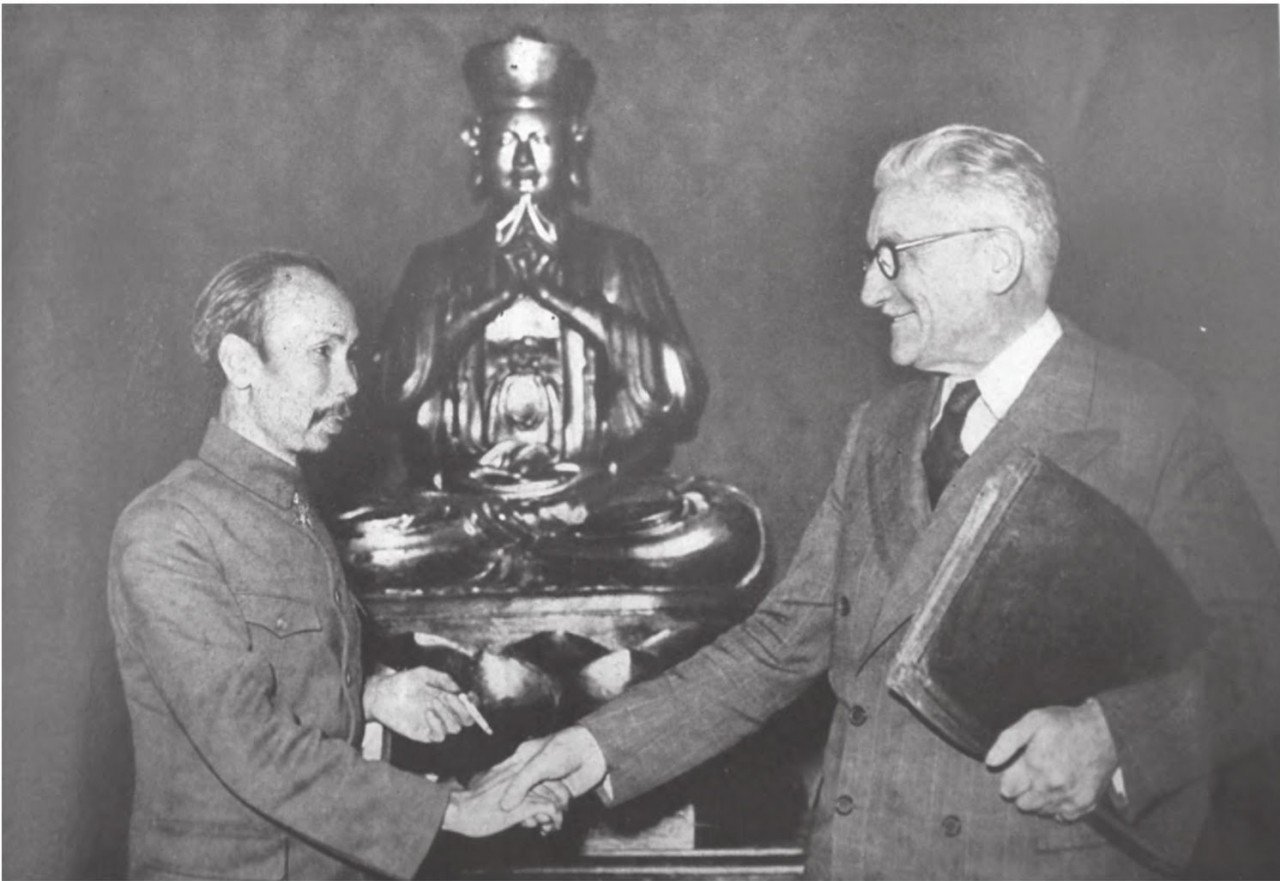 |
| President Ho Chi Minh and Minister Marius Moutet in Paris on September 14, 1946. (Source: Document) |
Persistently independent, self-reliant and holding high the flag of justice
Entering the period of resistance against France and the US, the US-China-Soviet triangle relationship always had complicated changes. China bargained with the US about the Vietnam War by withdrawing US troops from Taiwan (China). China and the Soviet Union were the two main countries supporting the DRV government in the resistance, but had fierce conflicts.
In that situation, Vietnam was always under pressure from both countries regarding the content, direction and technical details of the negotiations. In 1950, President Ho Chi Minh reminded: "With the support of the Soviet Union and China in terms of materials, weapons and equipment, we will have less difficulty, but winning must be determined by our own efforts."
During the period of resistance against the US, learning from the experience of the Geneva Conference in 1954, this time Vietnam had valuable experience and resolutely maintained independence and autonomy, but at the same time skillfully maintained solidarity with the Soviet Union and China. During the negotiation process, the high-ranking leaders of the Party, the Government of the Democratic Republic of Vietnam and the Ministry of Foreign Affairs regularly had diplomatic contacts, informed the Soviet Union and China, listened to opinions, but selectively accepted them, exchanged and convinced them to understand Vietnam's stance, and guaranteed aid in weapons and food from both.
The most difficult time for Vietnam during this period was when the US entered into détente with the Soviet Union and China in 1972 to force the two countries to reduce their assistance to Vietnam. In a private meeting right after visiting China and the Soviet Union with US President Nixon, US Secretary of State Henry Kissinger expressed his intention to probe comrade Le Duc Tho: "Your advisor through Beijing and Moscow must have heard your friends inform us of our opinions in this negotiation?"
Comrade Le Duc Tho replied: “We fought against your army on the battlefield and we negotiated with you at the conference table. Our friends wholeheartedly supported us but could not do it for us.”
This further demonstrates that determination and perseverance in independence and autonomy is a profound lesson of Vietnamese diplomacy.
| “We fought against your army on the battlefield and we negotiated with you at the conference table. Our friends wholeheartedly supported us but could not do it for us.” (Comrade Le Duc Tho) |
Promote combined strength
The important lesson of diplomacy during this period was to promote the combined strength on the foreign front; closely combine the North and the South, between diplomacy and the military, between Vietnam's internal strength and the international front...
This was most evident during the Paris Agreement negotiation period. The peculiarity of this period was that Vietnam had two foreign ministries, the Democratic Republic of Vietnam and the Provisional Revolutionary Government of the Republic of South Vietnam, also known as CP-72.
During the negotiation process, with the motto "two but one, one but two", the two delegations had a careful division of labor and coordination, from proposing solutions to assigning diplomatic roles in each meeting, taking advantage of public opinion. The two delegations paid attention to expanding contacts and taking advantage of international public opinion, each member of the two delegations was also a journalist, actively promoting the international movement, taking advantage of the international solidarity front to support a peaceful and stable Vietnam.
Right from the beginning of the negotiation process, the peace proposals, statements, and press conference contents of the two Vietnamese delegations were made public to gain great public support, causing difficulties for the US in international forums and within US politics.
We have stepped up propaganda at all times and in all places, with nearly 500 press conferences in Paris - the world's information center. Our high-ranking negotiators have regularly given interviews that have attracted public opinion.
In front of the press, the image of Minister Nguyen Thi Binh with her calm demeanor, Minister Xuan Thuy with her impressive smile, comrade Le Duc Tho with his strong character and Deputy Minister Nguyen Co Thach with his sharp responses made a strong impression on the international public at that time.
The world's great interest in the Paris Agreement can be compared with previous major international political conferences such as Potsdam, Tehran or Yalta. To continue to affirm and clarify our situation and stance, the two negotiating delegations sent delegations to all over France and countries in Asia - Europe - Africa - Latin America to attend rallies, demonstrations and conferences.
Fighting while negotiating, combining diplomacy with military, and gaining the support of the international community for the just struggle of the Vietnamese people is the correct strategy and effective method at this stage.
After the 1972 Spring-Summer General Offensive, seeing the opportunity, the Party and State decided to enter into substantive negotiations. During this process, the Vietnamese negotiating delegations promoted the spirit of independence, autonomy, and self-directed negotiations, not allowing external pressure to influence them.
The smooth coordination between the two negotiating delegations, promoting combined strength, taking advantage of public opinion, and promoting the world people's movement to support Vietnam helped the Paris negotiations reach final victory, creating conditions for the country's reunification in 1975.
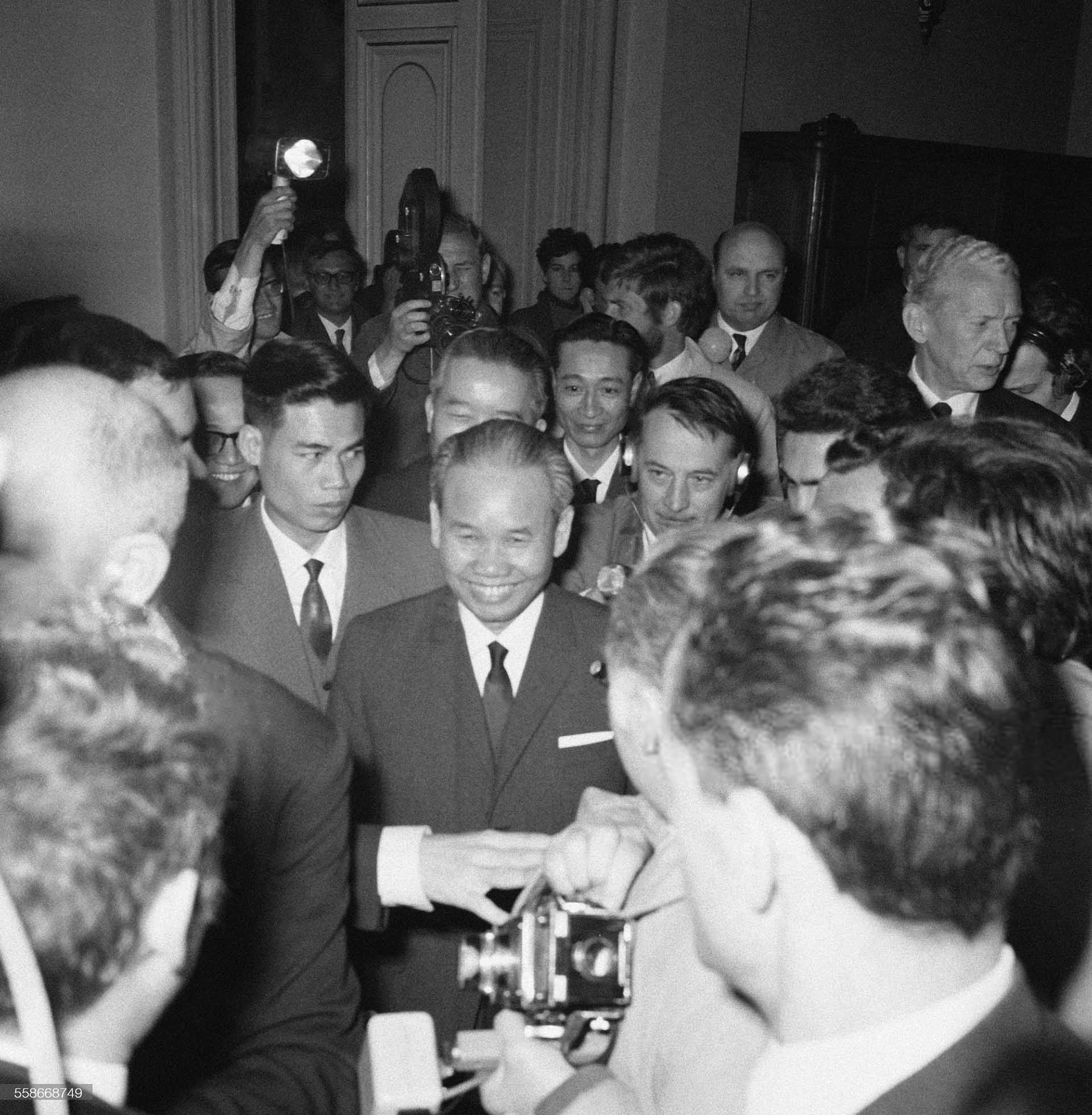 |
| Foreign Minister Xuan Thuy in Paris, France on May 10, 1968. (Source: Getty Images) |
Change your thinking, persevere step by step to break the difficult situation
After 1975, the world and regional situation had many rapid and complex changes. Domestically, the great victory in the Spring of 1975 brought the country into a new stage of development, with many heroic events but also many ups and downs. Vietnam at that time fell into an extremely difficult situation, being embargoed economically, surrounded politically and diplomatically. However, it was in that difficult and challenging period that diplomacy accompanied the nation, strongly demonstrating internal strength and mettle to help the country break the embargo and enter a period of international integration.
The Party and the State also recognized that the Cambodian issue would be the key to resolving regional and international relations and escaping the siege and embargo. The Ministry of Foreign Affairs decided to establish an internal research group, coded CP-87, with the task of researching policies to resolve the Cambodian issue and peace in Southeast Asia; and preparing plans for struggle before, during and after a solution is found.
At the same time, from the very beginning, the diplomatic sector identified serving the country's socio-economic development as a key task. The 9th Diplomatic Conference (July 1970) stated the policy that "Diplomacy needs to study the economic needs of countries, seek international aid, collect scientific and technological advances abroad, and promote economic, cultural, and scientific and technological relations with other countries". Then, the 10th Diplomatic Conference (January 1971) emphasized: "Then, after the war ends, diplomatic work will gradually become more economic in content".
In the years 1986-1988, the socio-economic crisis in Vietnam reached its peak. With the spirit of "looking straight at the truth, telling the truth, renewing thinking", the 6th Congress (December 1986) proposed a policy of comprehensive renovation. Together with foreign affairs agencies, the Foreign Affairs sector contributed to the development of Resolution No. 13 of the Politburo (May 1988). This Resolution demonstrated a strong renewal of thinking in assessing the world situation and redirecting the entire foreign policy strategy of our country.
From the assessment that the trend of struggle and cooperation between countries with different social regimes is increasingly developing, the Resolution proposed the policy of "shifting the struggle from a state of confrontation to struggle and cooperation in peaceful coexistence" and emphasized that "with a strong economy, a sufficiently strong national defense, and the expansion of international cooperation, we will have more ability to maintain independence and successfully build socialism".
Since then, Vietnam has gradually broken the embargo and implemented an independent, self-reliant, multilateral, and diversified foreign policy, becoming a friend, a reliable partner, and a responsible member of the international community.
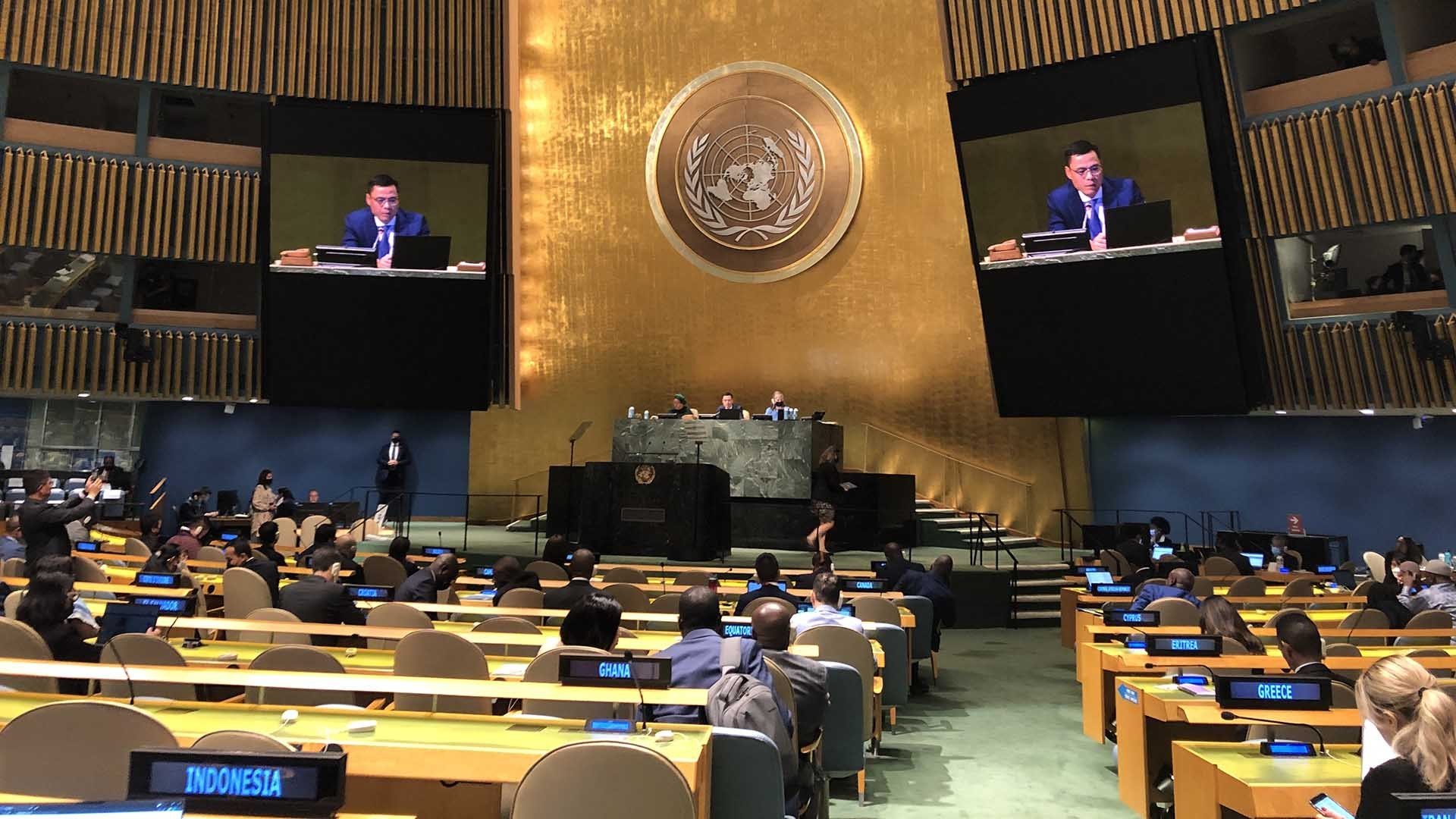 |
| The Vietnamese Mission to the United Nations participates in moderating a General Discussion. (Source: Vietnamese Mission to the United Nations) |
Look back to move forward
143 years ago, the famous Nguyen Truong To once said: "The time has come for the world to gradually move towards a prosperous era, to spread its wings in all directions." That is the time for the nation to transform itself, improve its strength, raise its position, and reach out to the world.
Whether the country is prosperous or in difficulty, whether the external world environment is favorable or difficult, diplomacy always filters opportunities, identifies and creates opportunities, is an art, is a commitment to overcome difficulties. When in difficult circumstances, diplomacy as well as the country always considers adversity as a place to test courage and intelligence, a stepping stone to create a position, from which to rise up and rise up.
Throughout that process, the diplomatic sector has always been present and contributed at key moments, from the early days of the revolution, through two resistance wars, the Doi Moi process to the stage of development and international integration. In the common success of the sector and the country is the great, tireless efforts of generations of diplomatic cadres and many other "armies" on the foreign affairs front. President Ho Chi Minh once commented: "Cadres are the root of all work". Only when the roots are firmly rooted in the ground, can the tree be strong, have lush branches and leaves, and reach the blue sky.
Imbued with the first Minister's thoughts, the foreign affairs sector has paid special attention to personnel work and research. The 13th Diplomatic Conference (1977) is a typical example of a transformation in the work of building the sector, including research and personnel work, contributing to creating the foundation for the diplomatic career in the Renovation period with many achievements, integrating the country internationally, keeping up with the trend of the times to "stand shoulder to shoulder with the powers of the five continents".
The world today is facing many challenges and difficulties, and Vietnam is no exception. In that context, Vietnamese diplomacy, rich in national identity, full of spirit, peace, respect for reason and justice, with the experience and historical lessons after 80 years of formation and development, will always strive to further promote its pioneering role, serving the longevity of the country and the nation.
Valuable experiences drawn from a long history of properly and harmoniously handling the relationship between independence and autonomy, between national interests and international responsibilities will be a solid foundation for foreign affairs in general and diplomacy in particular.
Lessons on steadfastness in diplomatic principles and flexibility in strategy will be the core elements to continue to promote the key role in creating and maintaining a peaceful and stable environment, serving the development and raising the country's position in the coming time.
As former Foreign Minister Nguyen Dy Nien commented: “A nation with a rich identity and a long-standing culture is the source of Vietnam's diplomatic identity. The national cultural connotation is enhanced with the values of humanity and the times, reflected in the ideology and diplomatic style of President Ho Chi Minh, in the intellectual height of the Party's national policies and strategic decisions, through flexible, engaging, persuasive ways of behaving, maintaining principles when pursuing foreign policy goals. The more complicated the situation, the more flexible the strategy, the more flexible the behavior on the basis of firmly grasping the goals and principles of the revolution. That is an identity of Vietnam's diplomacy in the modern period”.
| “The more complicated the situation, the more flexible the strategy and the more flexible the response, based on a firm grasp of the goals and principles of the revolution. That is a characteristic of Vietnamese diplomacy in the modern period.” (Former Foreign Minister Nguyen Dy Nien) |
Source: https://baoquocte.vn/ngoai-giao-viet-nam-truong-thanh-qua-nhung-bai-hoc-lich-su-200019.html




![[Photo] Solemn opening of the 8th Congress of the Central Public Security Party Committee, term 2025-2030](https://vphoto.vietnam.vn/thumb/1200x675/vietnam/resource/IMAGE/2025/10/4/f3b00fb779f44979809441a4dac5c7df)
![[Photo] General Secretary To Lam attends the 8th Congress of the Central Public Security Party Committee](https://vphoto.vietnam.vn/thumb/1200x675/vietnam/resource/IMAGE/2025/10/4/79fadf490f674dc483794f2d955f6045)

![[Photo] Bustling Mid-Autumn Festival at the Museum of Ethnology](https://vphoto.vietnam.vn/thumb/1200x675/vietnam/resource/IMAGE/2025/10/4/da8d5927734d4ca58e3eced14bc435a3)
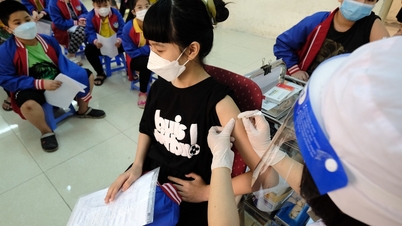

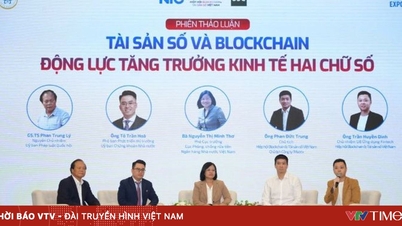

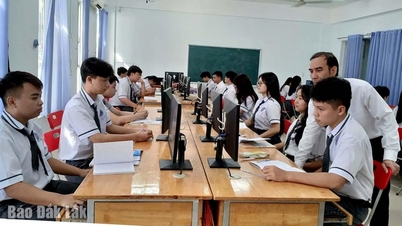



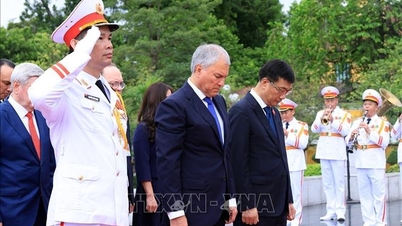

![[Photo] President visits Vietnam's Permanent Mission to the United Nations](https://vphoto.vietnam.vn/thumb/402x226/vietnam/resource/IMAGE/2025/9/24/b97c02dea2634eb38b94b1d6145671e3)

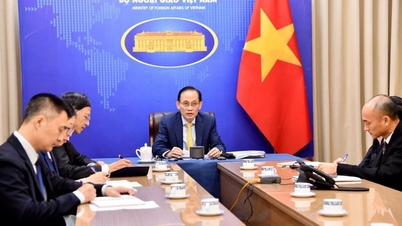


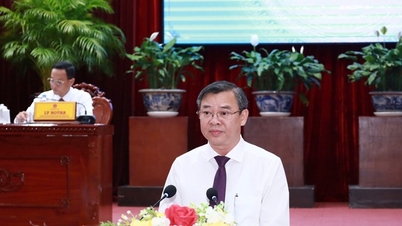
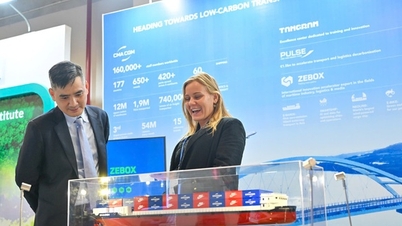
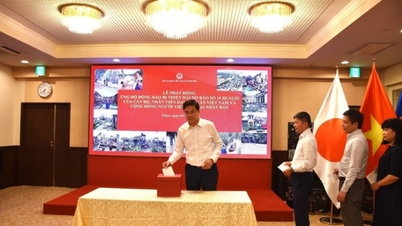






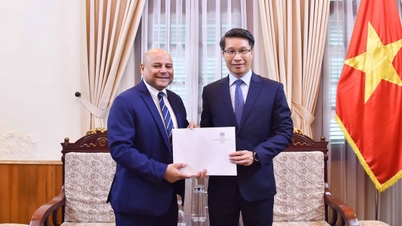
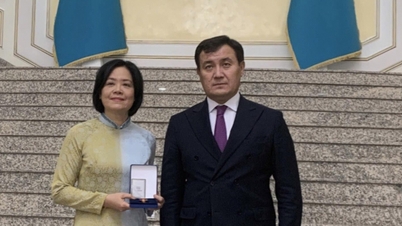
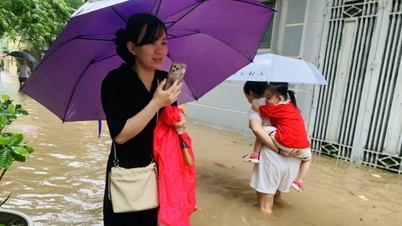
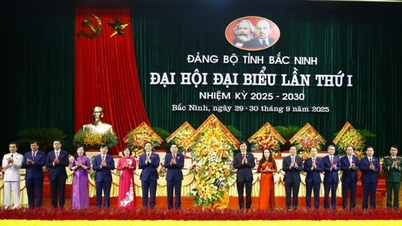
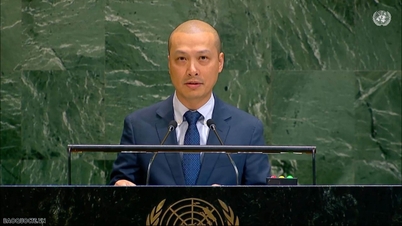
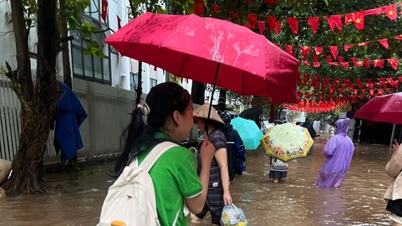

























![[VIDEO] Summary of Petrovietnam's 50th Anniversary Ceremony](https://vphoto.vietnam.vn/thumb/402x226/vietnam/resource/IMAGE/2025/10/4/abe133bdb8114793a16d4fe3e5bd0f12)

![[VIDEO] GENERAL SECRETARY TO LAM AWARDS PETROVIETNAM 8 GOLDEN WORDS: "PIONEER - EXCELLENT - SUSTAINABLE - GLOBAL"](https://vphoto.vietnam.vn/thumb/402x226/vietnam/resource/IMAGE/2025/7/23/c2fdb48863e846cfa9fb8e6ea9cf44e7)















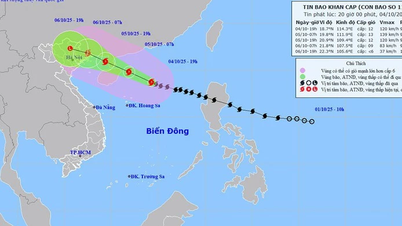

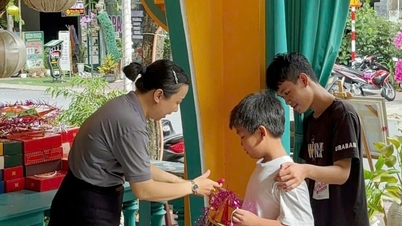



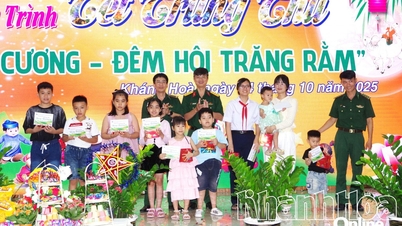











Comment (0)